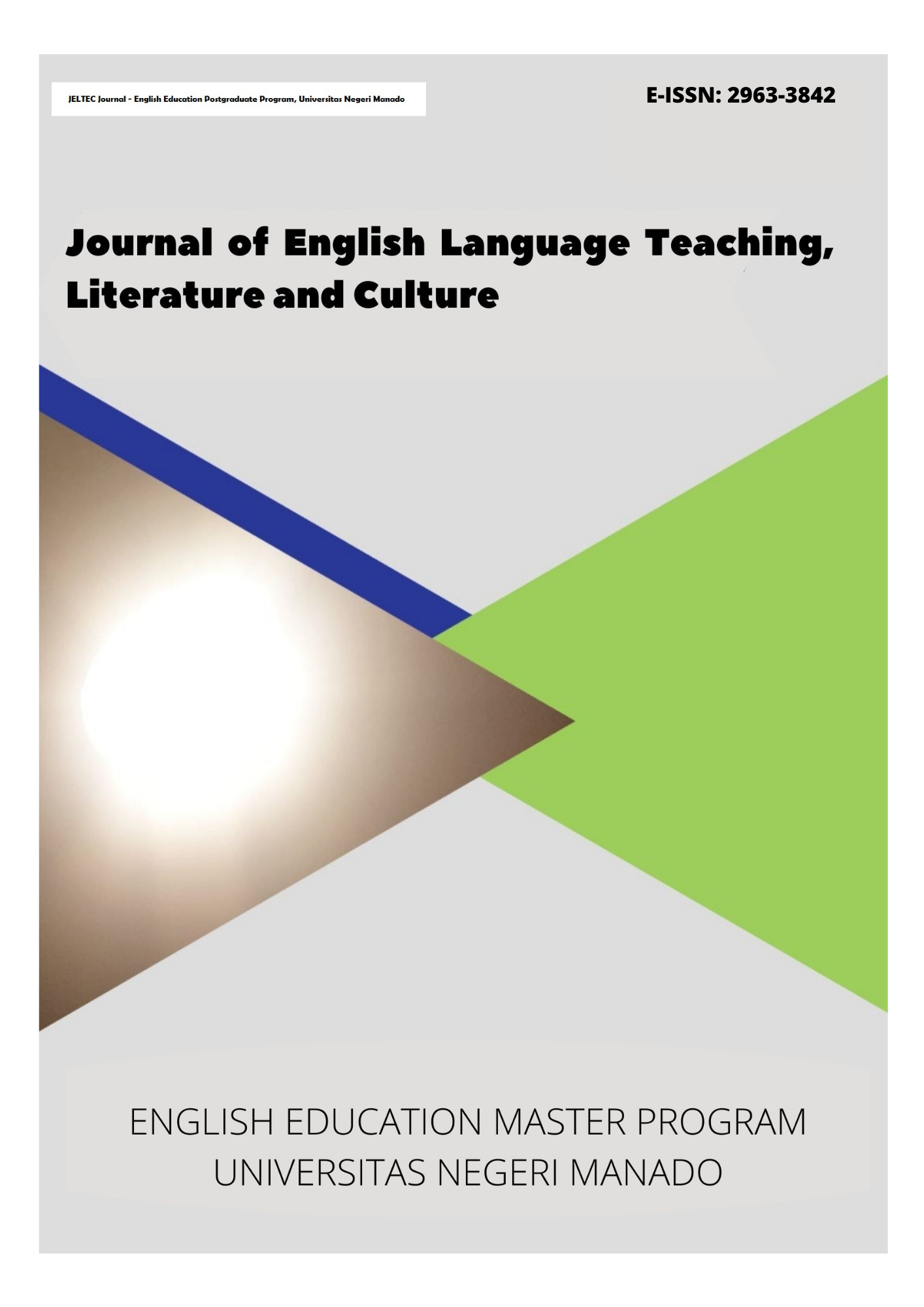Applying The Constructivist Activities on Teaching English Literature A Study is Conducted in Literature Class of English Education Department of Universitas Negeri Manado
DOI:
https://doi.org/10.53682/jeltec.v3i1.7434Keywords:
Constructivist theory; Learning; Students’ mastery; LiteratureAbstract
The aim of this research is to find out whether the constructivist theory is effective to enrich students mastery of literary work or not This research is classified as quantitative research which is true experimental design the data collected in the form of numbers and the data statistically analyzed In this research the writer used a sample of students in the parallel class of English Education students in the 3th semester who had learned the subject of Introduction to Literature One class randomly chosen from 4 clasess as the experimental class and control class and the t test observe used in analyzing the data < em>The research finding shows that students were given a pre test to what extent they understood about English Literature from the results obtained it was known that there were differences in mastery of the field of literature in each individual Then the students are given treatment using the constructivist theory referring to the students learning experiences about the work of English Literature given exposure and then post test results which can show the experimental group gets the majority of scores higher than the control group This means that there are significant differences between students interest in learning about English Literature has increased in mastery of the topic and the overall phenomena that accompany it In other words students who are taught using Constructivist theory master the topic or material better even they can enjoy the learning process more than Students who are not taught using Constructivist theory< em>< p>
References
Brooks J and Brooks M 1993 In Search of Understanding: The Case for Constructivist Classrooms ASCD
Bednar A Cunningham D J Duffy T Perry D 1995 Theory in practice: How do we link? In G Anglin Ed Instructional technology: Past present and future 2nd ed pp 100 112 Englewood CO: Libraries Unlimited
Freman Bruner J 1986 The Process of Education Cambridge MA: Harvard University Press;
Fosnot C T 1996 Constructivism: A Psychological theory of Learning In C T Fosnot Ed Constructivism: Theory perspectives and practice pp 8 33 New York: Teacher College Press
Gagnon G W Collay M 2001 Designing for learning: Six elements in constructivist classrooms Thousand Oaks CA: Corwin Press Inc
Gillani B B 2003 Learning Theories and the Design of E learning Environments Lanham Md : University Press of America
Hackbarth S 1996 The Educational Technology Handbook New Jersey: Englewood Cliffs
Howe K R Berv J 2000 Constructing constructivism epistemological and pedagogical In
D C Phillips Ed Constructivism in education: Opinions and second opinions on controversial issues: 99th yearbook of the National Society for the Study of Education Part 1 Chicago: University of Chicago Press
McCarty L P Schwandt T 2000 Seductive illusions: Von Glaserfeld and Gergen on
epistemology and education In D C Phillips Ed Constructivism in education: Opinions and second opinions on controversial issues 99th yearbook of the National Society for the Study of Education Part 1 Chicago: University of Chicago Press
Miller J B 2000 The Quest for the constructivist statistics classroom: Viewing Practice through
Constructivist Theory 1990 Unpublished doctoral Disertation The Ohio State University Colombus
Perkins D N 1992 Smart schools: From training memories to educating minds: New York: The Free Press
Phillips D C Ed 2000 Constructivism in education: Opinions and second opinions on
controversial issues 99th yearbook of the National Society for the Study of Education Part 1 Chicago: University of Chicago Press
Richardson V 1997 Constructivist Teaching and Teacher Education: Theory and Practice In
Constructivist Teacher Education: Building a World of New Understandings ed V Richardson p 3 14 Bristol Pa : Falmer Press
Schunk D H 2004 Learning theories: An educational perspective Upper Saddle River NJ: Pearson Prentice Hall
Vansteenkiste M Simons J Lens W Deci E Sheldon K 2004 Motivating learning performance and persistence: The synergistic effects of intrinsic goal contents and autonomy supportive contexts Journal of Personality and Social Psychology 87 2 246 260






